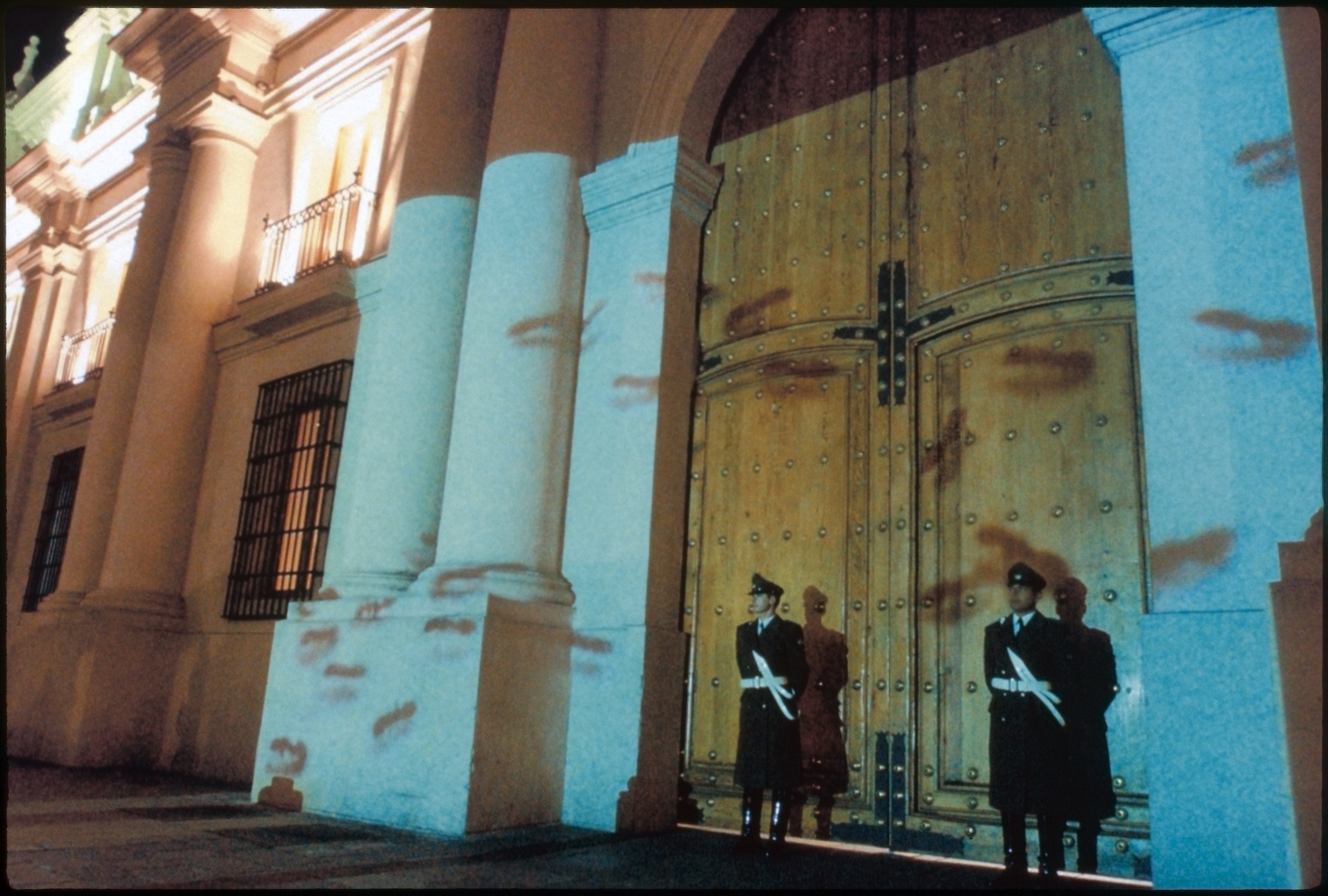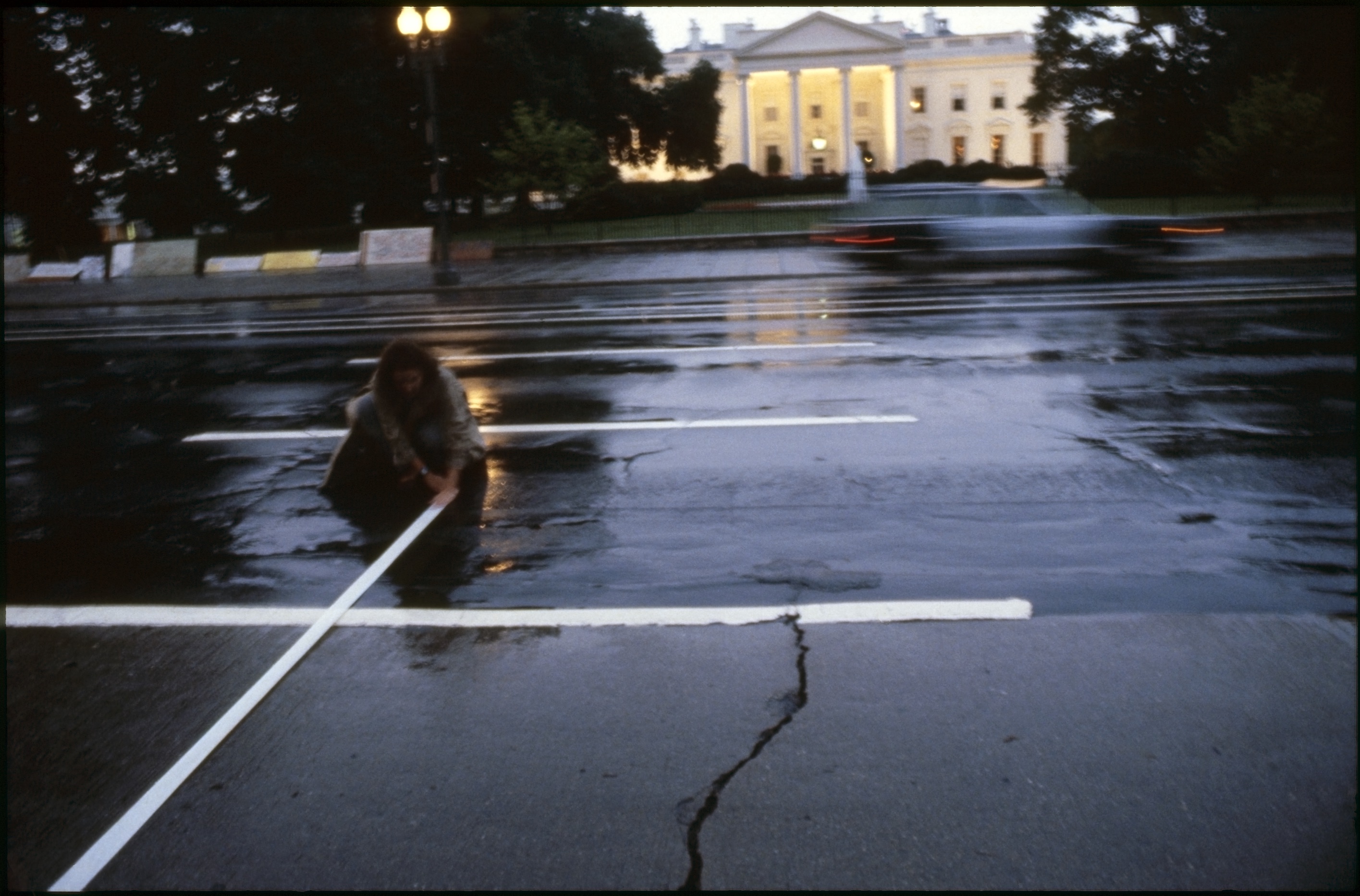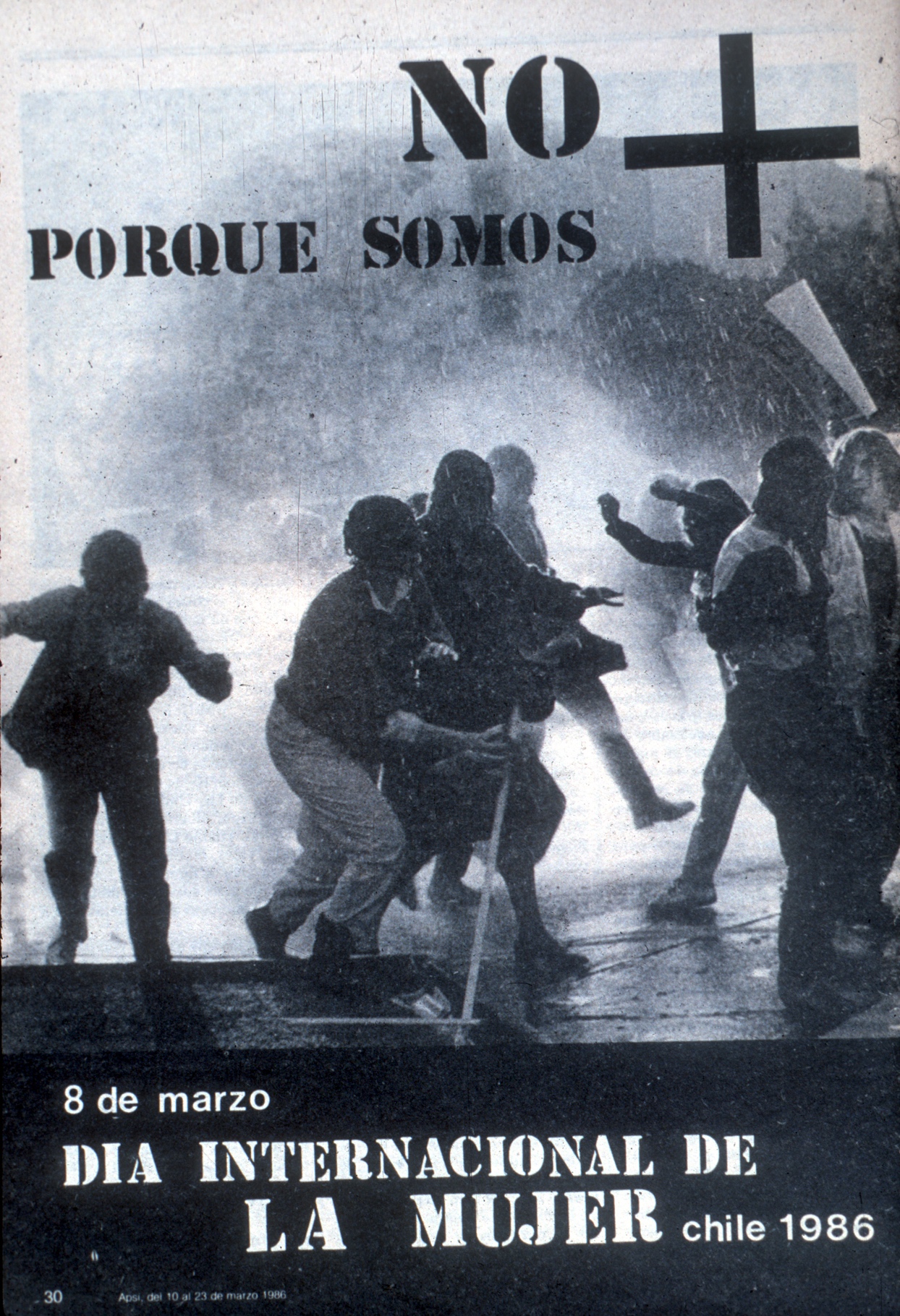 Lotty Rosenfeld, Moción de Orden (Point of Order), 2002. Video projection. Courtesy Lotty Rosenfeld Foundation
Lotty Rosenfeld, Moción de Orden (Point of Order), 2002. Video projection. Courtesy Lotty Rosenfeld FoundationDisobedient Spaces, co-curated by Julia Bryan-Wilson and Natalia Brizuela, will be the first US retrospective of Chilean artist Lotty Rosenfeld (b.1943, Santiago; d.2020, Santiago). Rosenfeld was a key member of the “Escena de Avanzada,” a group of Chilean artists who attempted to mobilize their society under Augusto Pinochet’s repressive regime, which lasted from 1973 to 1990. She was also a founding member of the experimental Colectivo Acciones de Arte (CADA), which produced ambitious public projects that disrupted daily life under the dictatorship and heightened awareness of social and political injustices under the regime.
 Documentation of Lotty Rosenfeld’s action Una Herida American (An American Wound) in front of the White House, Washington, DC, 1982. Courtesy Lotty Rosenfeld Foundation
Documentation of Lotty Rosenfeld’s action Una Herida American (An American Wound) in front of the White House, Washington, DC, 1982. Courtesy Lotty Rosenfeld FoundationThe survey will document a range of works, from large-scale video projections on the sides of buildings to iconic public interventions to evidence of Rosenfeld’s influence on a younger generation of feminist activists. Works include Una milla de cruces sobre el pavimento (One Mile of Crosses on the Pavement) (1979), in which Rosenfeld used white bandages and tape to alter traffic lines in front of the Chilean Presidential Palace—an action that questioned state authority—and NO+ (“No more”), a phrase developed with CADA that was taken up across Chile as a call for protest during the dictatorship.
 An advertisement for International Women’s Day in Chile featuring Lotty Rosenfeld’s signature and the slogan of Movimiento Unitario Mujeres por la Vida, No + Porque Somos + (No More Because We Are More+), 1986. © C.A.D.A. (Colectivo Acciones de Arte). Courtesy Museo de la Memoria y los Derechos Humanos, Santiago
An advertisement for International Women’s Day in Chile featuring Lotty Rosenfeld’s signature and the slogan of Movimiento Unitario Mujeres por la Vida, No + Porque Somos + (No More Because We Are More+), 1986. © C.A.D.A. (Colectivo Acciones de Arte). Courtesy Museo de la Memoria y los Derechos Humanos, SantiagoThe curators will contextualize both her solo work and her collaborations with CADA, positioning Rosenfeld as a crucial node in a Latin American network that merged activism with poetry. They will frame her practice through the lens of care, feminist friendship, and solidarity across difference, highlighting these as central to her conceptual strategies by foregrounding lesser-known works of intimate collaboration, illuminating her relationships with fellow artists and activists, and commissioning new texts that engage feminist lineage and collective resistance. The exhibition will also feature performances by contemporary artists whose work is influenced by Rosenfeld and engages directly with her practice.